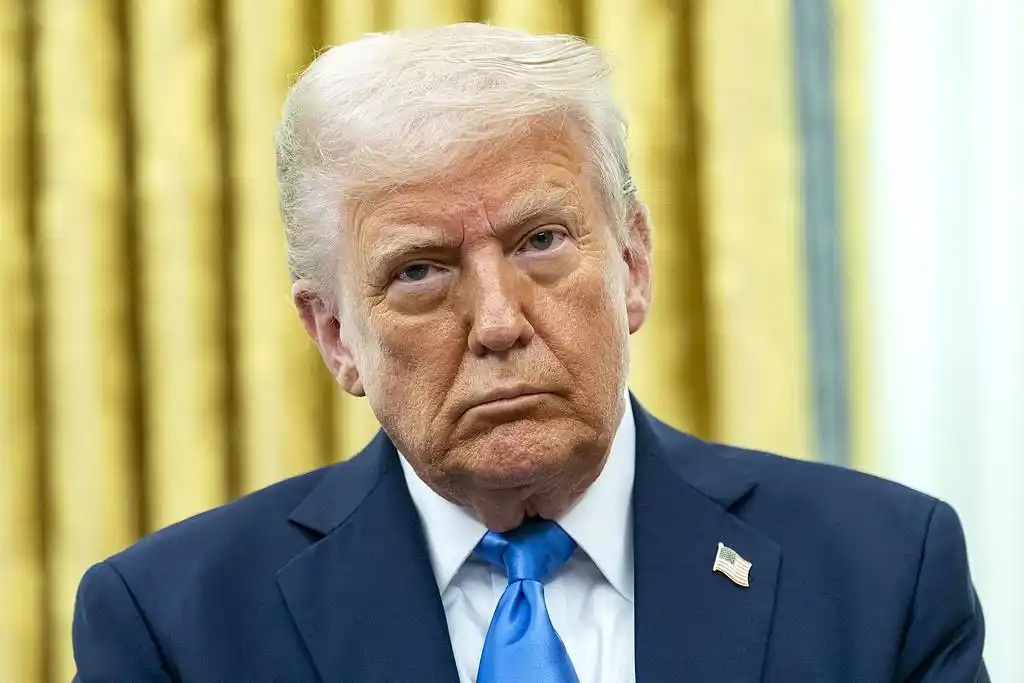TMTPOST -- U.S. President Donald Trump on Wednesday signed an executive order to slap Brazil with 50% tariffs to addressed the alleged threat from the Brazilian government.

Credit:China Central Television
The executive order dictates an additional 40% tariff on Brazil, bringing the total tariff amount to 50%, to deal with recent policies, practices, and actions by the Brazilian government that constitute “an unusual and extraordinary threat to the national security, foreign policy, and economy of the United States”, according to a fact sheet released by the White House.
The executive order made Brazil a big loser as the tariff rate of 50% it now faces is the highest so far announced of the levies which are poised to begin in August, and the rate suggested a massive jump from the 10% tariffs the Trump administration imposed in early April.
Trump on July 9 has sent a letter to Brazilian President Luiz Inacio Lula da Silva, also known as Lula,threatening new reciprocal tariffs of 50% on all Brazilian imports, starting on August 1.But the executive order on Wednesday showed some differences from that letter. An additional ad valorem duty rate of 40% on certain products of Brazil will be effective on 12:01 a.m. eastern Eastern Daylight Time seven days after the date of this order, namely, on August 6, accoding to the order.
Trump in his letter to Lula claimed the 50% tariffs were in part due to “Brazil's insidious attacks on Free Elections, and the fundamental Free Speech Rights of Americans”, calling on the Brazilian government to drop charges against Bolsonaro, his political ally. He said the tariffs also resulted from “unsustainable Trade Deficits against the United States” caused by many years of Brazil’s trade policies.
However, the United States maintained a trade surplus with Brazil last year. The U.S. goods trade surplus with Brazil was $7.4 billion in 2024, expanding 34% over a year earlier, according to the Office of the U.S. Trade Representative (USTR). Lula on July 10 refuted Trump’s claim of a trade deficit, stating that statistics show a $410 billion trade surplus with Brazil over the past 15 years.
The executive order didn’t attack Brazil with the trade deficit, instead, it set a legal rationale that Brazil’s policies and criminal prosecution of Bolsonaro constitute an economic emergency under the International Emergency Economic Powers Act of 1977 (IEEPA).

The order also establishes an additional 40% tariff to address the Brazilian government ’s unusual and extraordinary policies and actions harming U.S. companies, the free speech rights of U.S. persons, U.S. foreign policy, and the U.S. economy, per the fact sheet from the White House.
“Members of the Government of Brazil have taken actions that interfere with the economy of the United States, infringe the free expression rights of United States persons, violate human rights, and undermine the interest the United States has in protecting its citizens and companies,” wrote the order.
According to the order, Brazilian officials have issued orders to compel United States online platforms to censor the accounts or content of American persons, block the ability of American persons to raise money on their platforms, change their content moderation policies, enforcement practices, or algorithms in ways that may result in the censorship of the content and accounts of United States persons; and provide the user data of accounts belonging to United States persons, facilitating the targeting of political critics in the United States.
U.S. Treasury Secretary Scott Bessent in a statement targeted Brazilian Supreme Court Justice Alexandre de Moraes, claiming the judge”has taken it upon himself to be judge and jury in an unlawful witch hunt against U.S. and Brazilian citizens and companies.” Bessent said Moraes "is responsible for an oppressive campaign of censorship, arbitrary detentions that violate human rights, and politicized prosecutions", including against Bolsonaro. The Trump’s order called Bolsonaro’s prosecution “politically motivated.”
Following Trump’s order, the Brazilian government closed ranks behind Moraes, calling the U.S. sanctions "unacceptable." The government “considers the use of political arguments to defend the trade measures announced by the U.S. government against Brazilian exports to be unjustifiable,” according to a statement.
Lula indicated possible retaliation, saying that Brazil was willing to negotiate trade with the U.S., but that it would not give up on the tools it had at hand to defend itself. The president earlier this month has vowed reciprocity in response to Trump’s 50% tariffs.
"Any measure to unilaterally raise tariffs will be responded to in accordance with Brazil's Economic Reciprocity Law," Lula said in a post on X on July 10. On July 17, he said that Brazil would not tolerate foreign interference in its internal affairs, and pledged a civil and democratic response. He also said that U.S.-based digital platforms would be required to comply with Brazilian laws and pay taxes, and accused the companies of fueling disinformation and harming Brazilian society.
更多精彩内容,关注钛媒体微信号 (ID:taimeiti),或者下载钛媒体 App



























